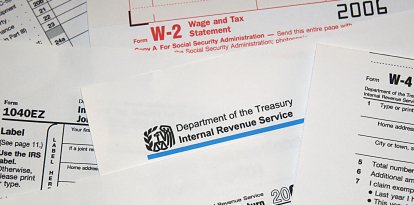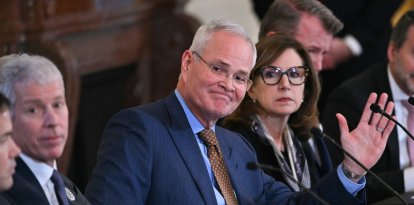OPEC production cut certifies Biden's disastrous energy policy
The Democratic Party shot down a Trump proposal to refill the strategic oil reserve at $24 a barrel and is now offering $80 a barrel to the oil cartel.

Unsplash
The Biden Administration is the main loser from the two million barrels of oil per day cut announced by OPEC. Not only because of the increase in energy prices that it will entail for the entire planet, but also because it certifies the resounding failure of the energy policy of the President of the Federal Government himself.
This is Joe Biden's personal discomfiture. A few weeks ago, Secretary of State for Energy Jennifer Granholm told Reuters that her department was considering extending the sale of barrels from the Strategic Reserve beyond October, when the measure is set to end. However, Granholm was overruled that same day. Just five days later, the White House announced that they are considering refilling the strategic reserve. The exact opposite.
Biden delayed Khashogi murder trial to Saudis
The explanation for this mismatch is proposed by Michael Shellenberger. The writer notes that an official revealed that the White House had made a secret offer to OPEC to prevent the organization from cutting crude oil production. Biden proposed to buy 200 million barrels at $80 a barrel if the organization did not slow down. The proposal also made it clear that the US "would not leave them high and dry."
According to Shellenberger, the president and his team did "everything to persuade Saudi Arabia and other OPEC members." Even after, as the writer complains, "the Biden administration sought a 45-day delay in a civil court case over whether Saudi Arabia's Crown Prince Mohammed bin Salman should have sovereign immunity for the murder of Washington Post columnist Jamal Khashogi, for which Bin Salman has taken responsibility."
Billions lost due to Democratic rejection of Trump's plan
The Biden Administration's move is a major blow to the Democratic Party' s energy policy credibility. It was precisely the Democrats in the Senate, led by Chuck Schumer, who scuttled Donald Trump's proposal in 2020 to invest $3 billion to refill the strategic oil reserve. The former president presented a project that would pay US$24 per barrel, by buying it from U.S. producers.
Schumer was proud of "defeating" Trump, and even went so far as to boast that his party had blocked a "bailout for big oil."
OPEC cuts daily production by two million barrels
Nevertheless, OPEC finally opted to cut production after meeting in Vienna. A higher cut than most experts expected and which will finally be two million barrels per day, the largest since 2020. A "technical" decision, according to UAE Energy Minister Suhail Al Mazrouei. "It is very important that it remains a technical decision and not a political one," he insisted from the Austrian capital. "That's why it's important to look at the technical side of the equation and analyze any concerns regarding the economy and the state of the economy."
An appropriate response is being considered by the Biden Administration. According to Bloomberg, the White House has already asked the Department of Energy to analyze whether a ban on exports of gasoline, diesel and other refined petroleum products would reduce prices. For its part, JP Morgan believes that "OPEC's move could trigger U.S. countermeasures, including additional releases from the Strategic Petroleum Reserve." In the event that the Executive Branch opts for the latter option, the US would have lost billions and would be in a much worse situation barrel wise due to the Democrats determination to overturn Trump's initiative. Specifically, there are currently 442 million barrels compared to 634 million barrels in storage in 2020.
Impact on the Economy
OPEC's announcement led to a rise in oil prices, but less than expected, as analyzed by oilprice.com. According to analyst Irina Slav, "it remains to be seen how much of the cut would be physical and what the U.S. would do in response to the move," and this has restrained markets.
In fact, Goldman Sachs estimated actual production cuts at half a million barrels per day due to the difference between their targets and the organization's output.
OPEC has accumulated several months in which it has not reached the targets set. What's more, some analysts suggest that the production cut agreed at this meeting would be more an attempt to bring targets closer to actual production than anything else. However, experts have revised their price forecasts upwards and estimate that the price of a barrel will reach $110 before the end of the year.























